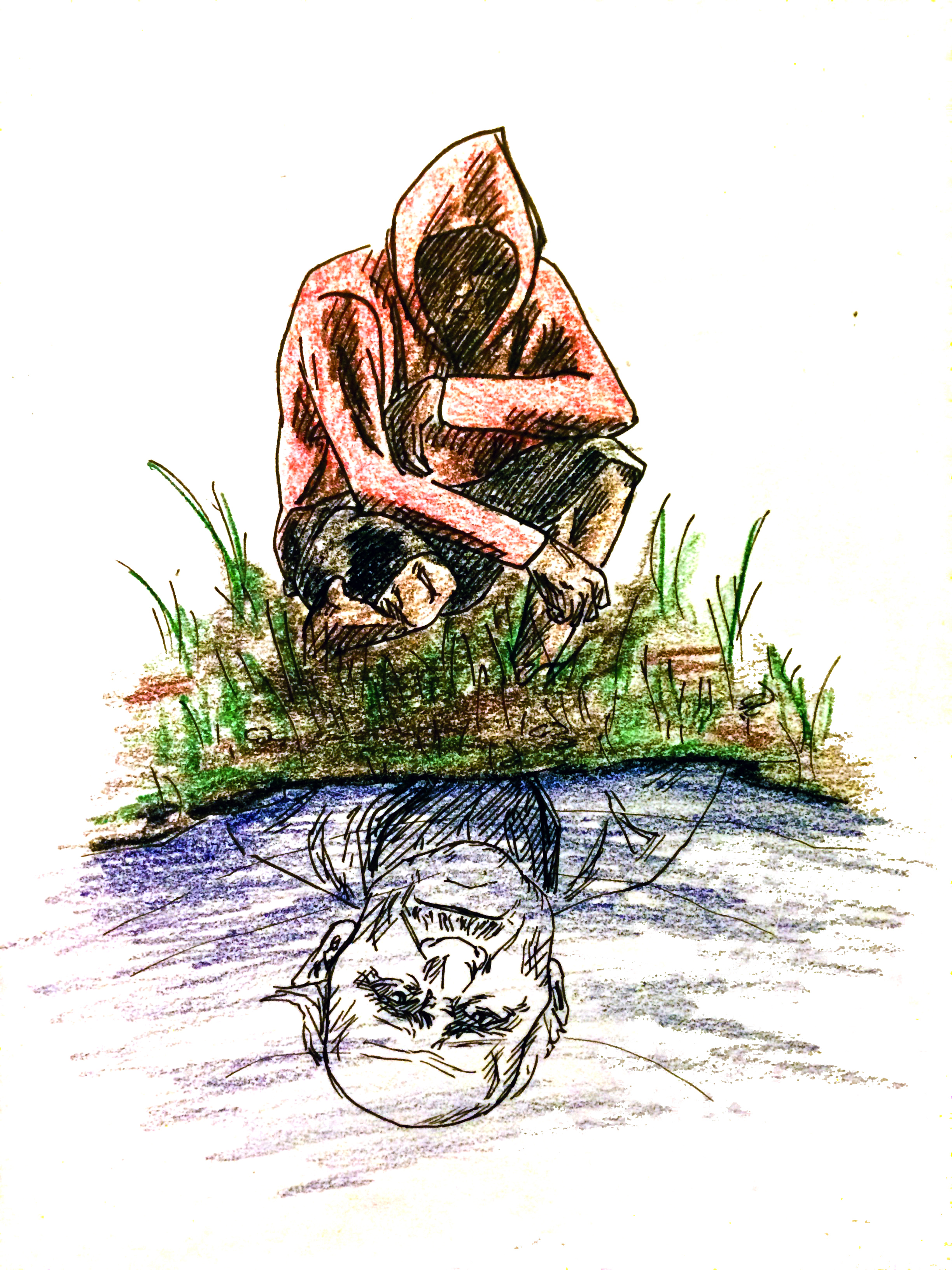
“Heaven knows we are never allowed to forget that the personality doesn’t exist anymore.”
— Doris Lessing, “The Golden Notebook,” read aloud to me by a friend
Simon, the toddler, cannot speak except to say “Mama.” He has matted yellow curls that stick off his forehead like the wings on that one Greek god’s sandals, and in the three hours we are together, he grabs my phone 10 times or so, slides the lock-screen open, taps the telephone icon, enters a random number, starts a call, holds the phone up to his ear and says “MA-ma? MA-ma?” He looks to me to be calling her from the future, conducting a perfectly futile search for her, missing her in a way that he will again sometime around 2035.
Babysitting for Simon and his brother PJ felt to me like the scene at the end of the play “Our Town,” where Emily goes back to her 12th birthday and watches her youthful parents but can say nothing. I wanted to command Simon to get a look at his parents, as beautiful as they’d ever be. But I understood too how impossible that was. Kids are doomed to look back one day and long for a more capacious memory, one that was able to make room for their parents’ harried but unwrinkled faces.
Trying to remember my grandfather is strange and makes me feel, in various senses, like a toddler. I think I expect the same magic of memory that Simon does of the misdialed iPhone — that it’ll talk back, put its arm over my shoulder, look me in the eye. You learn at Simon’s age that objects have permanence, don’t stop existing when you can’t see them. The sequel to that lesson seems to be object impermanence — that, simply because objects exist for a long time doesn’t imply that they’ll exist forever. It’s as infantile a realization, as momentous a fact. He died a month ago, and I called him Papa Mike.
Simon’s brother PJ is seven and how his mother said he would be in her email: inward, deliberative, cerebral. But he is also affable, and at the end of Sunday afternoon, he looks up at me and says, “I’ll miss Simon when he grows up.” I press him with a leading, ominous question like, “You mean, because he won’t be a baby forever?” and he responds with something like, “Yeah, he’s so cute now.”
Every time I try to conjure Papa Mike to mind, I have a very explicit feeling: I wish I could remember everything he ever said. I can describe him to myself, see his face, know something of what Doris Lessing would insist on calling his “personality,” but that constellation feels less like his distilled essence than like marketing copy, an attempt to summarize him, a lie. I get a sick feeling in my chest even now that I’ve charmed myself with words, let an attractive phrase stand as an excuse to create a memory. After 19 years of closeness, the pond of memory seems disturbingly shallow.
The problem, I think, is with my unreasonable expectation. Though of course I remember stories and jokes and birthday dinners and family dinners and Thanksgiving dinners and father’s day crab dinners and fourth of July dinners and dinners in New Hampshire and ordinary dinners at his apartment and at his old house with his last wife, and at our house in Iowa when he came to visit (was it only once? yes), none of those help much. Not when someone’s dead. When someone’s dead, you expect one simple favor from memory — the person’s revival. I need to summon him up all at once. Nothing less is sufficient. But “him” is… all-at-once, fleshly, weighty, total, spontaneous. Embodied and now. This expectation of mine is a wall into which memories ram and break open. Nothing seems to properly constitute him.
Him!
A pretty numbing and depressing thing about death is how little there is to be said about it, how few lessons can be taken. I know a little bit now of those who use the language of black holes and voids and gaping absence, negative space. I get sad when I think of Papa Mike’s being gone. Shouldn’t sad be the end of it? Preclude writing? What am I doing, then?
What I’m doing is writing — a method of communicating with oneself, just as calling is a method of communicating with others. There is no guarantee that either will ever work. But methods are reassurances against the unknowable; Simon understands this. What I’m doing is writing. What I’m doing is calling. What I’m doing is babysitting. What I’m doing is going to school. What does anyone do?
My grandfather was alive to whatever stood in front of him, and therefore prisoner to it. He had three wives, and a hundred favorite movies — but he had no wisdom about death. His personality was incompatible with that sort of knowledge.
I want to know what he didn’t. But I’m not sure I will any better than Simon knows why he makes the calls he does.







